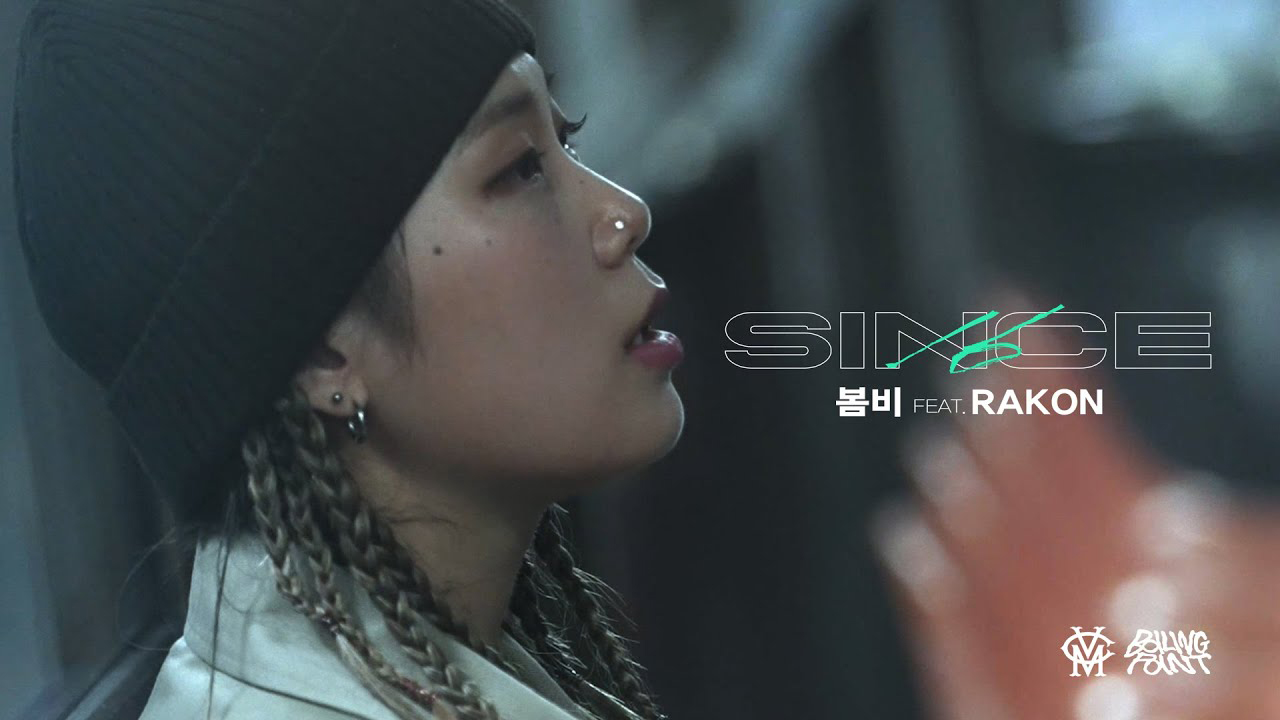
The most readily apparent phenomenon taking place in Korea’s hip hop scene today is the increase in female rappers. It's a remarkable turn of events considering how Yoonmirae was considered the one and only female rapper just a few years ago (and she debuted in the 1990s!). But there’s a sizable gap between what’s obviously true and what it feels like is happening all around. Likewise, while one can quickly and easily draw up a list of rappers, if the question is to name good ones, an answer might not come to mind right away. Here, “good” comes with several requirements. It’s not just their ability to rap, including their flow, that matters; they have to be a skilled writer, too. If you were to change “good” to “revered,” the bar is set even higher, because at that point you have to examine their career as well. They need to have releases like albums that most people consider to be indisputable masterpieces. Of course, nobody has a documented set of standards for what makes a rapper good or even revered. Call them an unofficial set of requirements established over the history of the genre. With that in mind, allow me to talk a little bit about the best female rapper who’s coming closest to earning that “revered” title at the moment.
Enter SINCE. She excels at spitting rhymes and has the kind of writing skills that could land her a career as a lyricist later. And that’s no exaggeration. If you’ve never heard of her, or only know her through Show Me the Money 10, do yourself a favor and listen to her first proper album, SINCE 16’, that came out last July. The album was made after going through the Boiling Point project run by the label VMC, which is led by Korean hip hop veteran Deepflow.
Where other rappers crib their style from Nicki Minaj, Cardi B or Megan Thee Stallion, or else stick to trite self-aggrandizement or amateurish sexual trope, SINCE focused on making a name for herself in her own image. The album is a perfect record of all her thoughts and experiences since the time she first started out in the music world in 2016. She initially went to university to study public administration and was on track to become a civil servant when hip hop irrevocably steered her life in the complete opposite direction. Instead of a normal, stable life, she ended up against total uncertainty for the future. Her father opposed her decision, not wanting his daughter to face any hardship. But it seemed that she would regret it if she gave up on becoming a rapper. SINCE eventually left home to pursue her dream. And she made herself a pledge: I’ll only go up from here.
One listen to “Interlude” and her talent is self-evident. She skillfully switches between rap and song on this track about her past. It’s a kind of singing rap that’s commonplace in Korea, but there’s no sign of autotune or the typical flow. Her strengths are even more obvious in “Spring Rain,” one of the best rap songs to come out the whole year. The song leaves a deep impression as she sing-raps a jumble of stories about the loneliness she encountered moving to a strange city to chase her dream, missing her father and her aspirations for a successful career as a rapper, her words falling like a soft rain.
Alternatively, you can hear some of her tight, hard-hitting raps on the album’s other tracks and in “GO UP” (featuring Jay Park and Woo and produced by CODE KUNST), which she competed with on Show Me the Money 10. Rappers who are renowned for their rap skills are able to expertly manipulate the number of words and the location of rhymes in each line to develop top-tier grooves. SINCE is likewise a master of this fundamental of the trade. Her rap skills place her among the top female rappers of this or any generation. Few can compete with how well she’s able to construct a narrative journey.
Some might hear all this and ask why we should evaluate rappers separately based on their gender at all. There’s a global trend happening now across the arts toward clearing away longstanding gender discrimination (mainly against women). Nevertheless, the label “female MC” carries special meaning in the world of hip hop. That’s because, as it developed with an eye toward the macho, hip hop, more than other genres, frequently left women the targets of sexual objectification and hatred, but they have actively stepped forward to reclaim the field. In other words, “female MC” is more than a mere title; it’s an important milestone in the history of hip hop and almost like a major subgenre and one that’s still evolving today. So we see many female rappers around the world proudly asserting their identity as “female MCs” and trying to leave their impression on the public—and the fact that they still have less time in the spotlight than their male counterparts plays into that.
This lack of recognition for female rappers is true of the Korean hip hop scene as well. But when it comes to the long shortage of skilled female rappers and their albums, the situation is different from th rest of the world. It’s also an undeniable truth that most of the female rappers who became famous through shows like Unpretty Rapstar or Show Me the Money failed to gain significant traction in their musical careers. That’s what makes SINCE’s story all the more special: We can see how eager she is to produce a masterpiece and find fame through rapping. I just hope her admirable desire doesn’t die down any time soon.
Unauthorized reproduction and distribution prohibited.